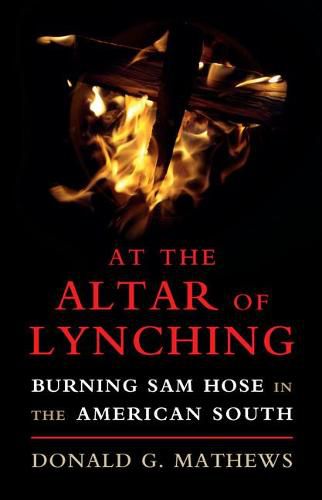Readings Newsletter
Become a Readings Member to make your shopping experience even easier.
Sign in or sign up for free!
You’re not far away from qualifying for FREE standard shipping within Australia
You’ve qualified for FREE standard shipping within Australia
The cart is loading…






The story of a black day-laborer called Sam Hose killing his white employer in a workplace dispute ended in a lynching of enormous religious significance. For many deeply-religious communities in the Jim Crow South, killing those like Sam Hose restored balance to a moral cosmos upended by a heinous crime. A religious intensity in the mood and morality of segregation surpassed law, and in times of social crisis could justify illegal white violence - even to the extreme act of lynching. In At the Altar of Lynching, distinguished historian Donald G. Mathews offers a new interpretation of the murder of Sam Hose, which places the religious culture of the evangelical South at its center. He carefully considers how mainline Protestants, including women, not only in many instances came to support or accept lynching, but gave the act religious meaning and justification.
$9.00 standard shipping within Australia
FREE standard shipping within Australia for orders over $100.00
Express & International shipping calculated at checkout
The story of a black day-laborer called Sam Hose killing his white employer in a workplace dispute ended in a lynching of enormous religious significance. For many deeply-religious communities in the Jim Crow South, killing those like Sam Hose restored balance to a moral cosmos upended by a heinous crime. A religious intensity in the mood and morality of segregation surpassed law, and in times of social crisis could justify illegal white violence - even to the extreme act of lynching. In At the Altar of Lynching, distinguished historian Donald G. Mathews offers a new interpretation of the murder of Sam Hose, which places the religious culture of the evangelical South at its center. He carefully considers how mainline Protestants, including women, not only in many instances came to support or accept lynching, but gave the act religious meaning and justification.